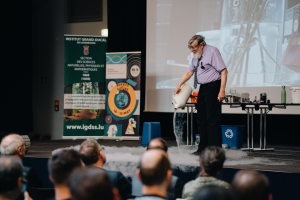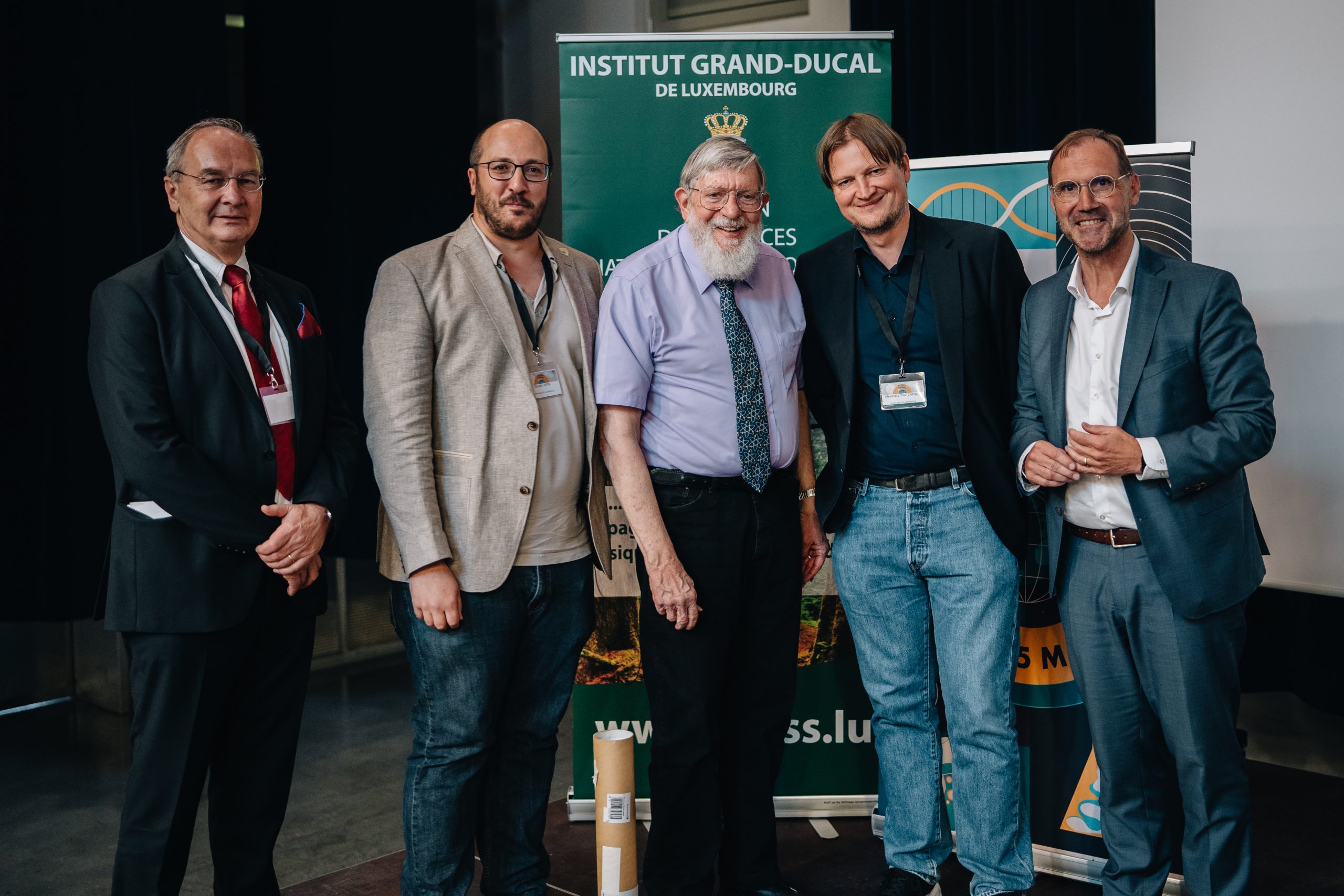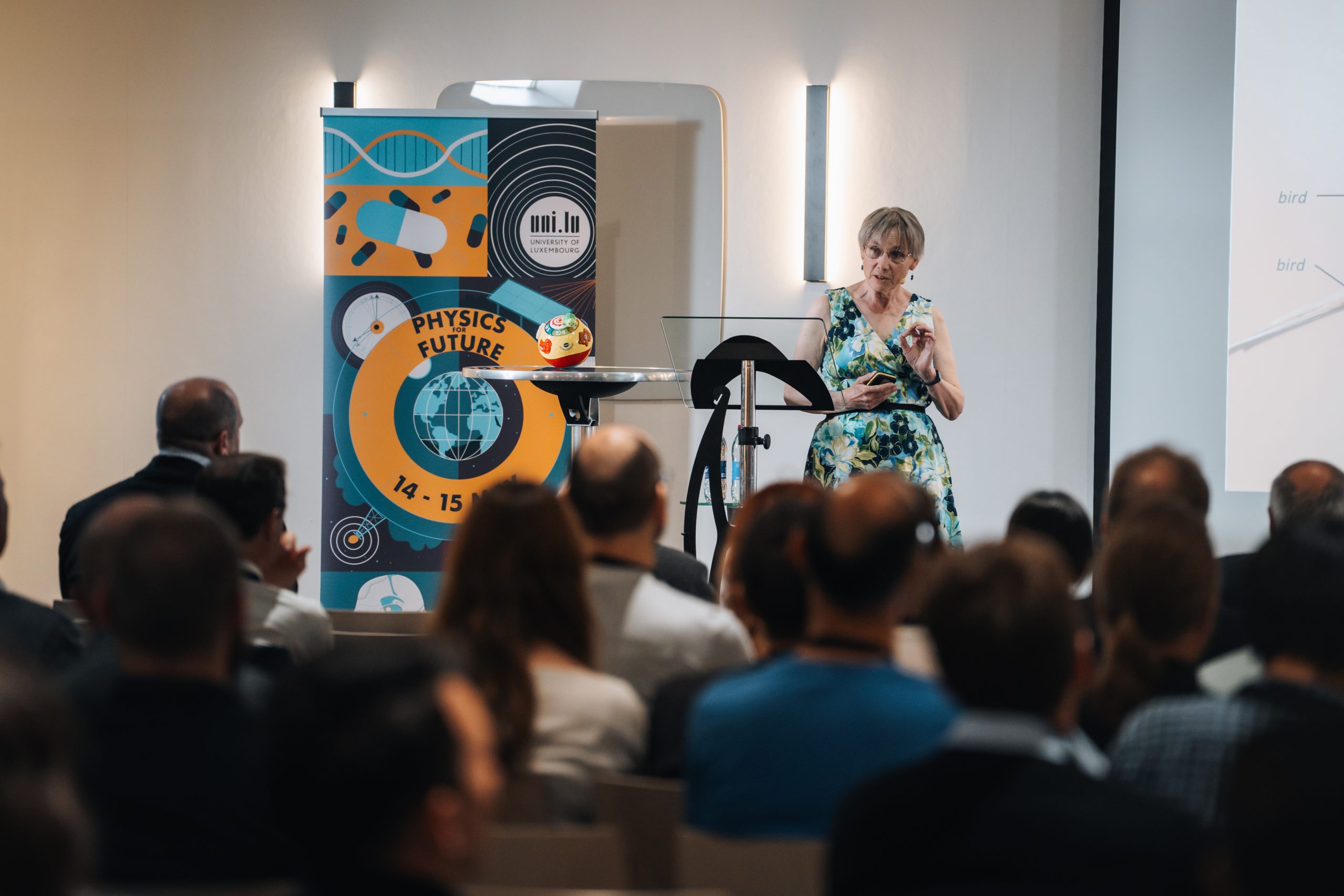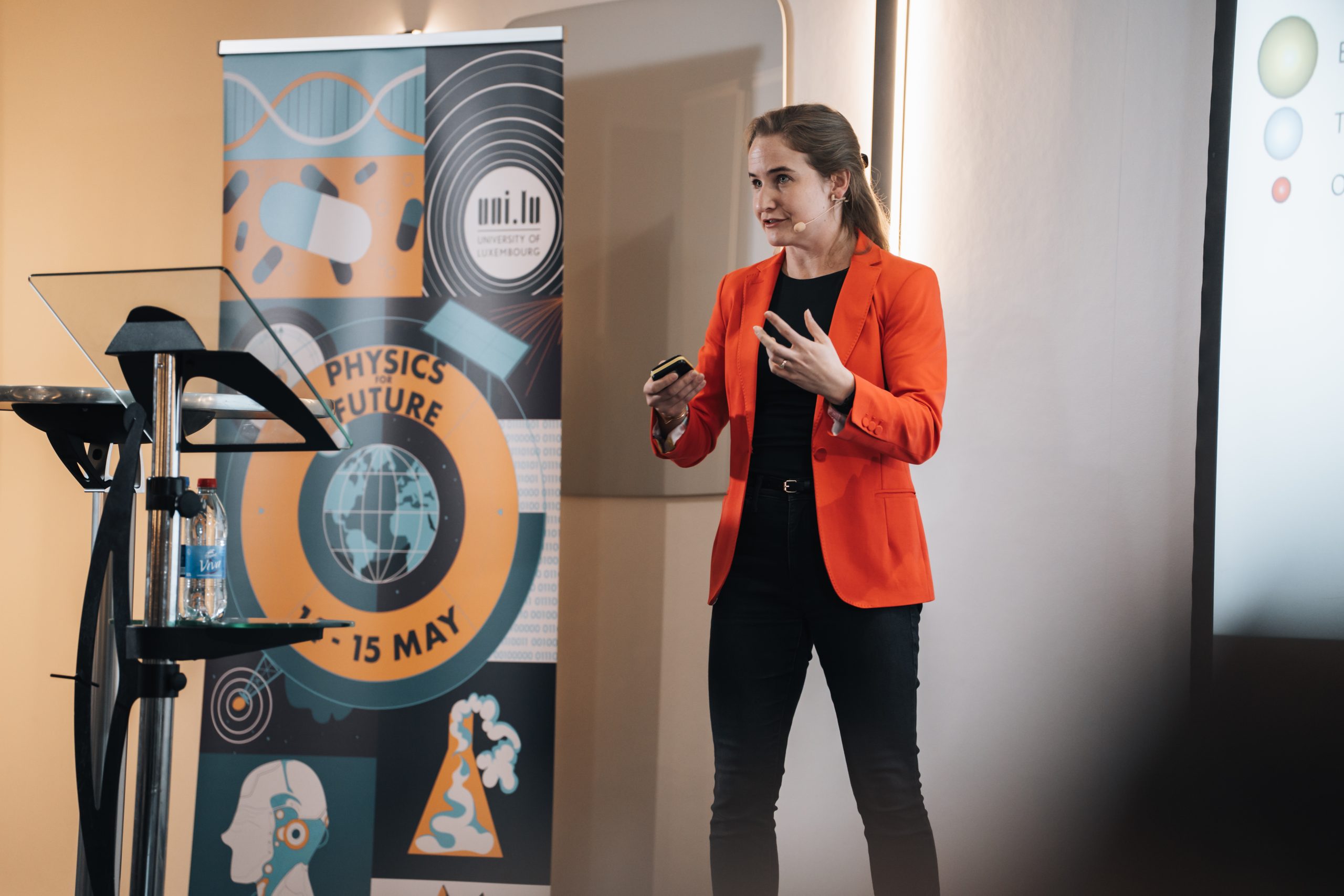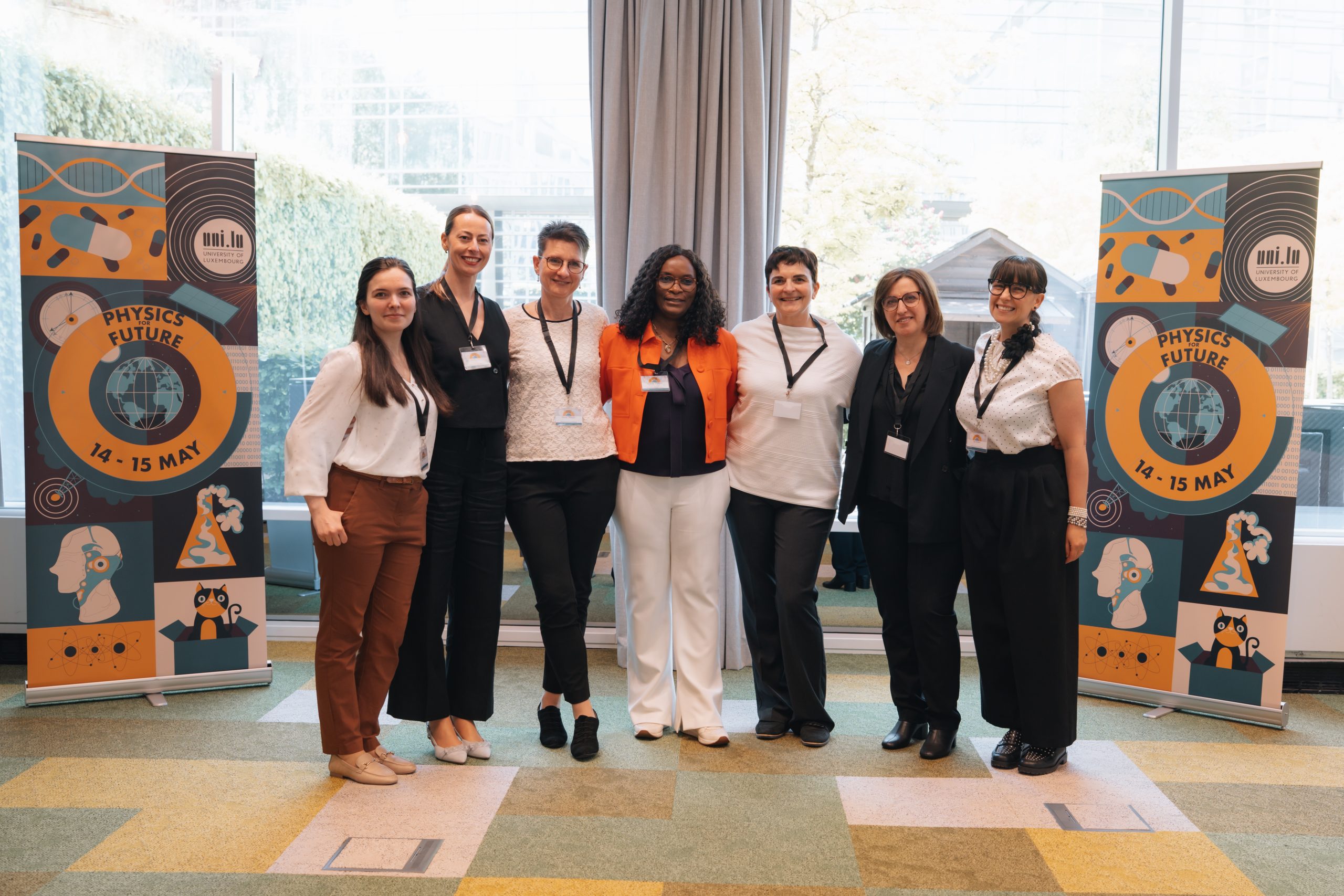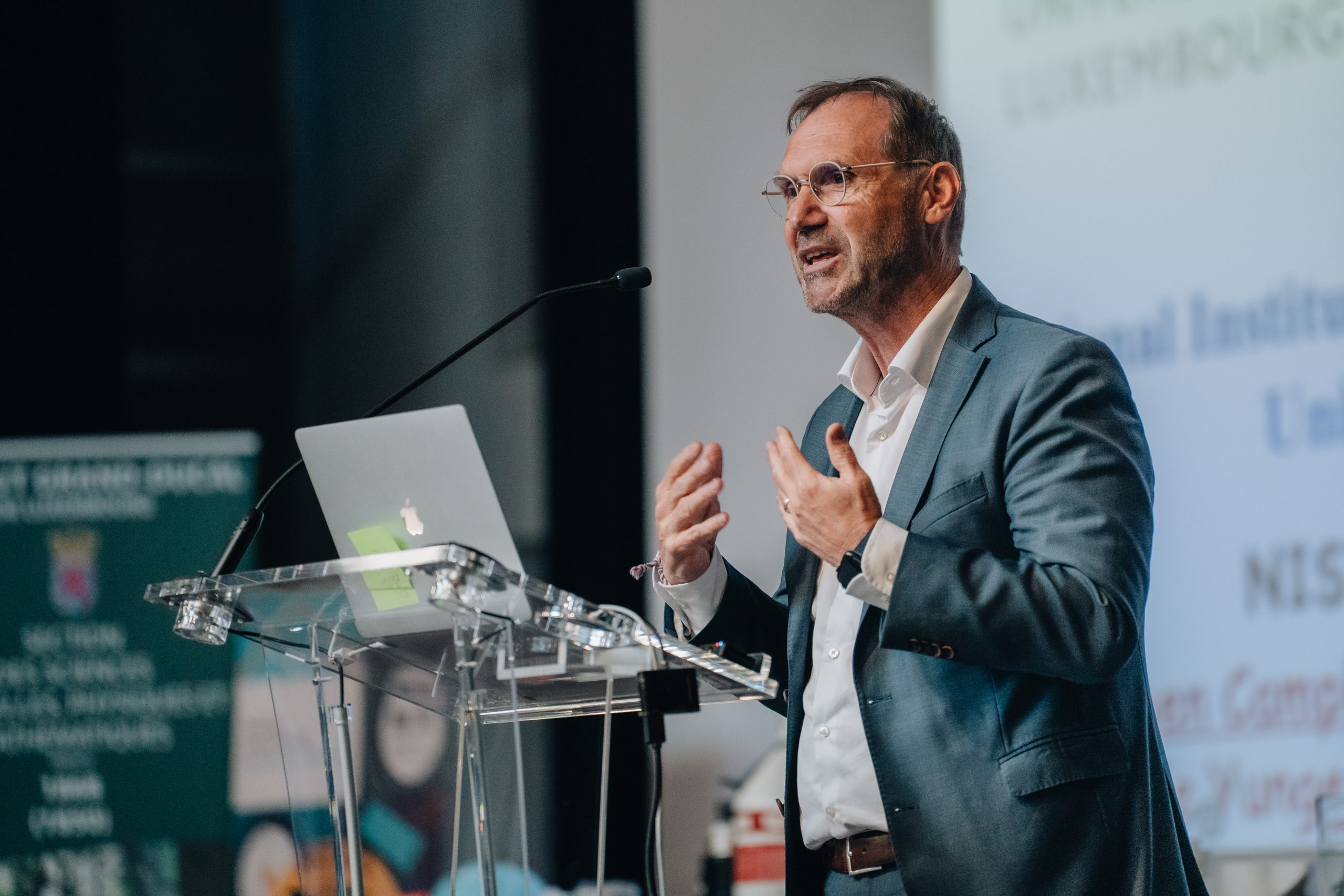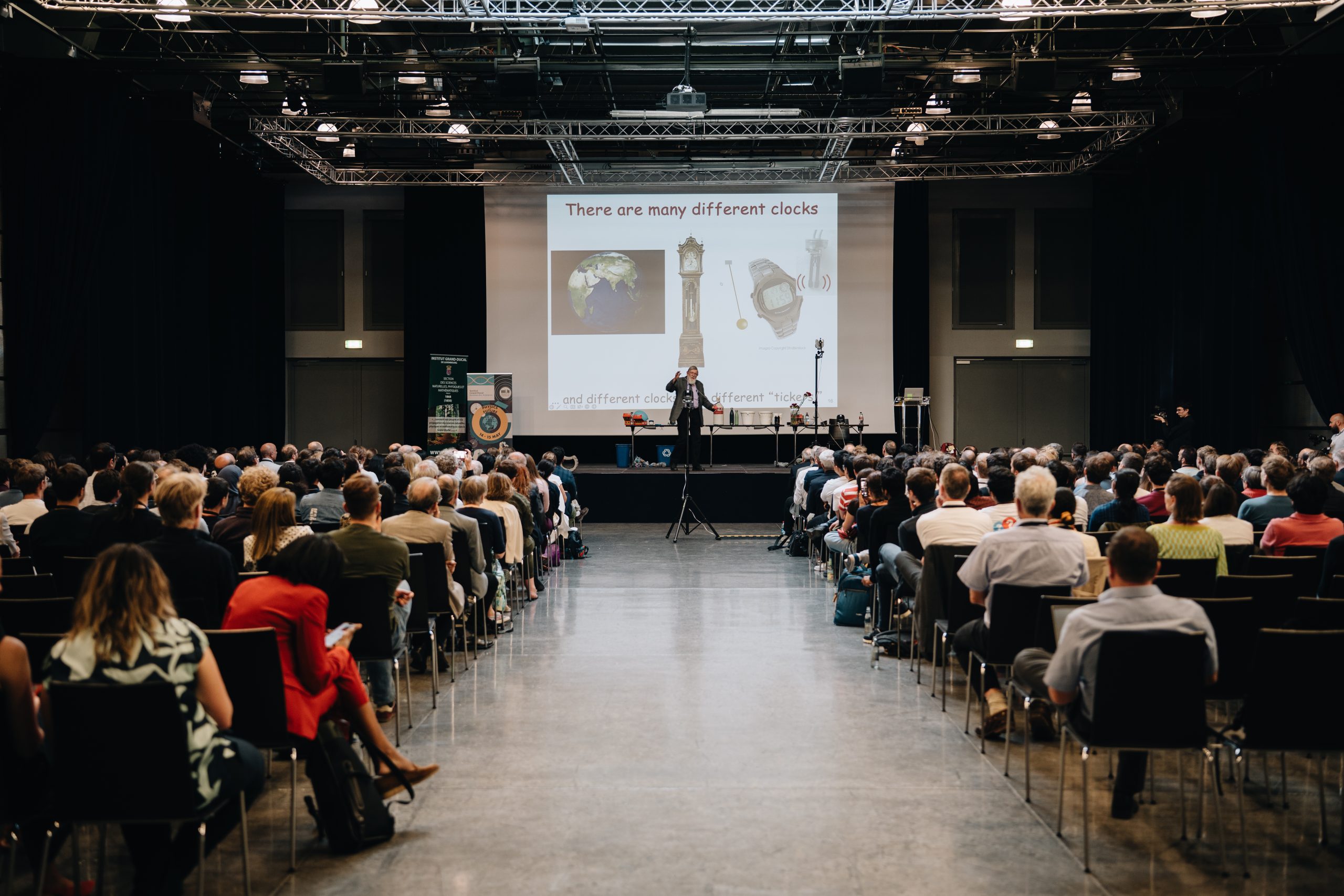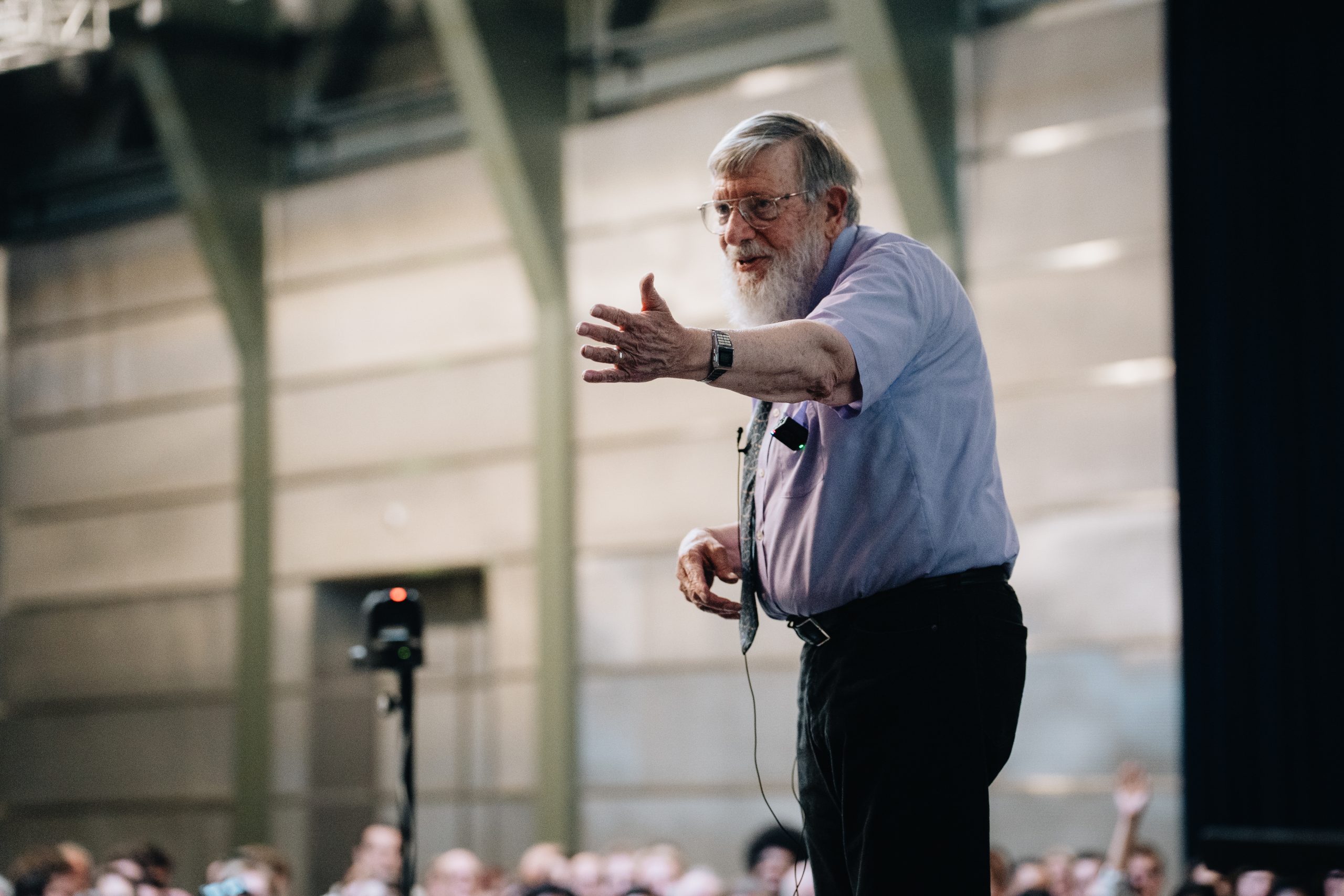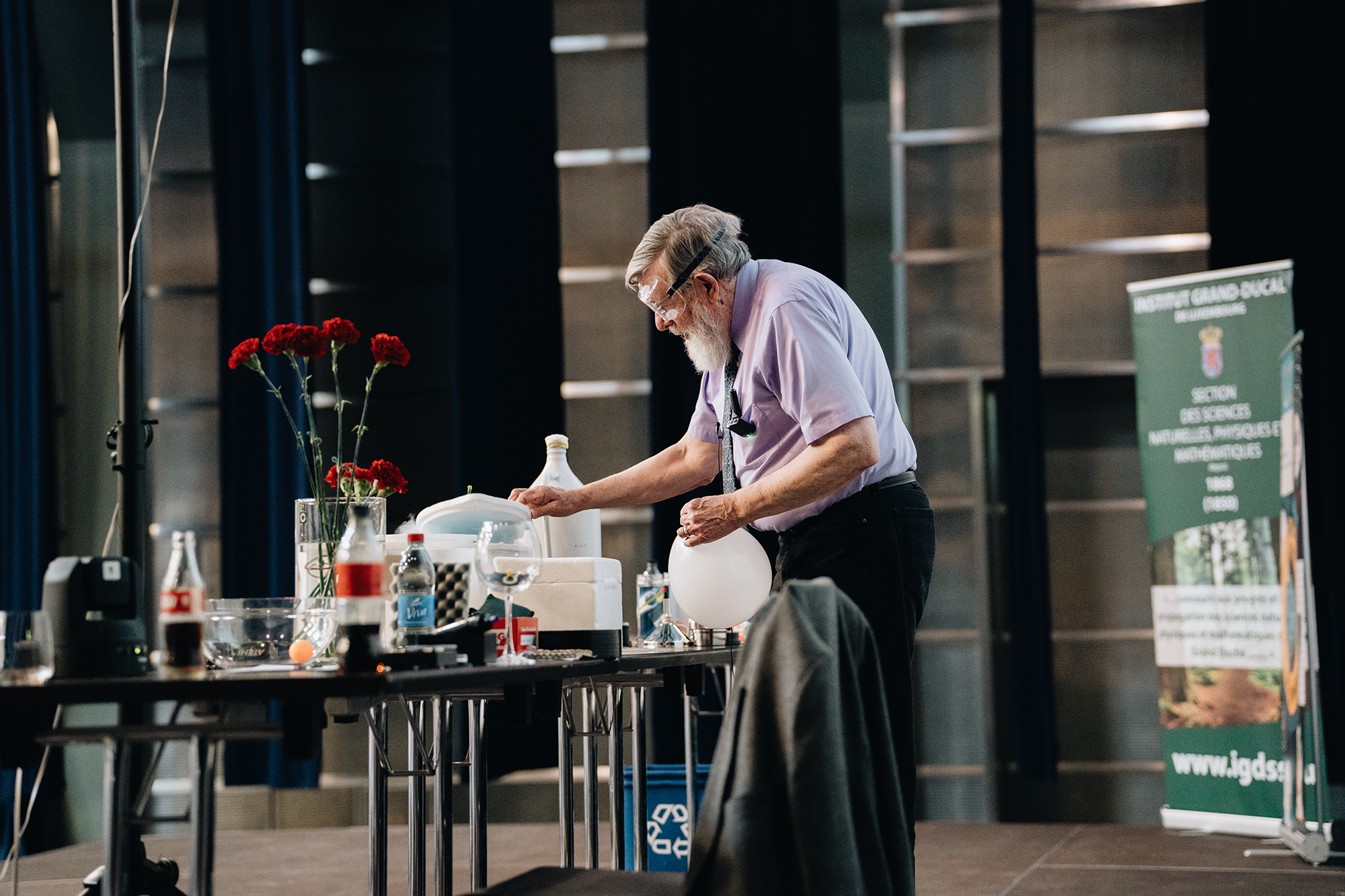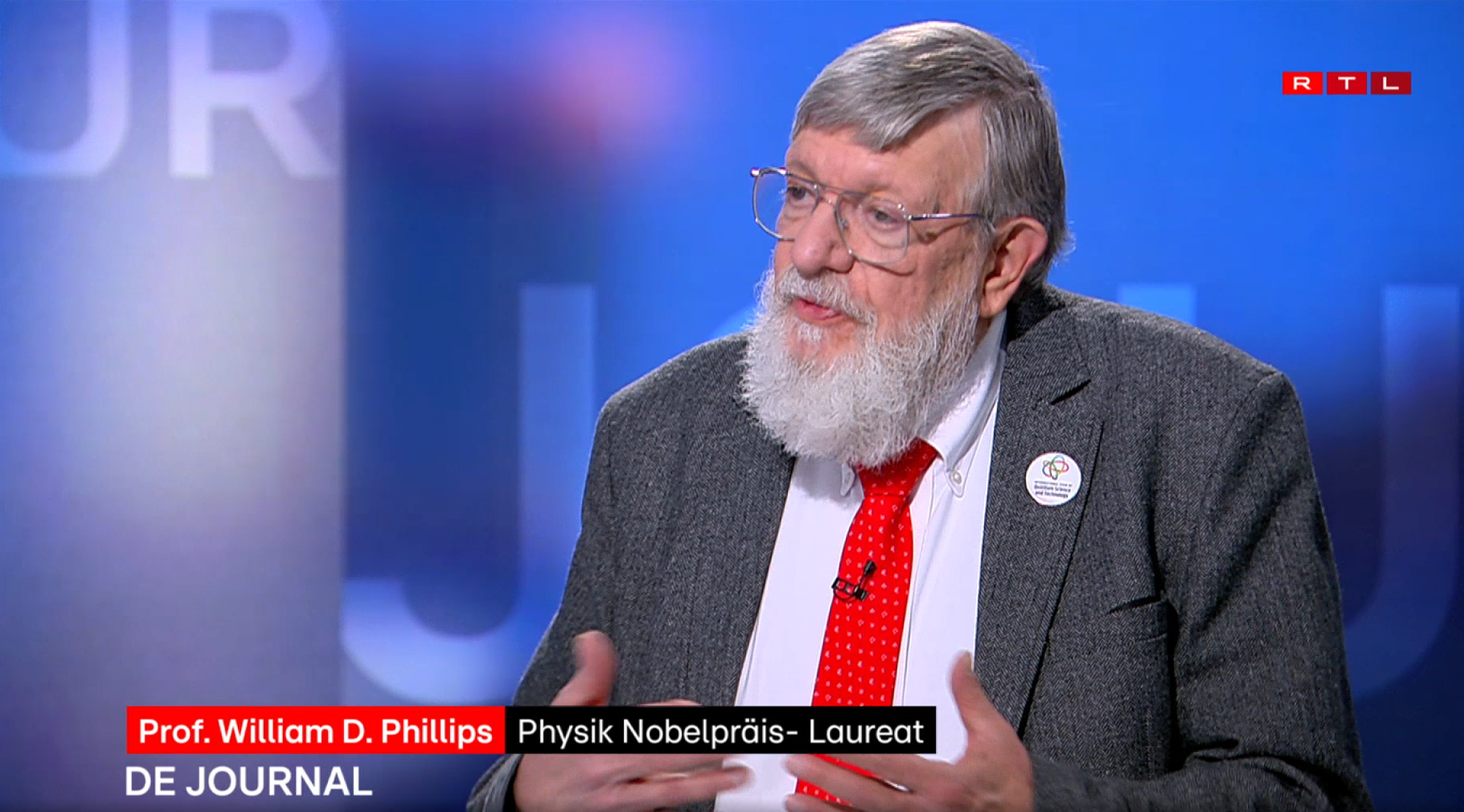It’s not every day that high school and university students get to ask questions to a Nobel Prize laureate—let alone witness a physics demonstration that ends in a loud, crowd-startling explosion. But that’s exactly what happened at Tramsschapp in Limpertsberg, where around 300 people, including 60 students from high school, bachelor, and master programmes, gathered for a public talk by Prof. William D. Phillips, winner of the 1997 Nobel Prize in Physics. The event marked the closing of the first day of the Physics for Future conference, and brought together researchers, policymakers, industry leaders, and the curious public under one roof.
“Your mother was right—you should never place a closed container in the oven!” Prof. Phillips joked, just after a bottle filled with liquid nitrogen burst open with a thunderous bang. The audience—already captivated by his animated, laughter-filled performance—burst into applause and laughter.
‟ Kids, naturally, are curious about the way things work. And somehow, as people grow up, most of the people lose that curiosity. But you know what? There is a certain class of people who don’t lose that curiosity. And those people are called scientists.”

Nobel Prize winner
This blend of theatrical demonstration and rigorous science defined the evening. Through dramatic demonstrations involving carnations frozen and shattered like glass, rubber balls that turned brittle, and the powerful blast of a nitrogen explosion, Prof. Phillips illustrated the strange and fascinating behaviour of matter at extremely low temperatures. He explained how he and his team used lasers to cool atoms to near absolute zero—research that earned him the Nobel Prize nearly three decades ago.
The evening wasn’t just entertaining—it was inspiring. Students posed questions during the Q&A and after the talk, curious about quantum mechanics, temperature extremes, and the future of physics research. Also present was Luxembourg’s Minister of the Environment, Climate and Biodiversity, Serge Wilmes, who attended the talk alongside researchers and science leaders from across Europe. In parallel, Stéphanie Obertin, Minister for Research and Higher Education, had an in-depth discussion with William D. Phillips on the challenges facing a young research ecosystem such as Luxembourg’s.
‟ Physics underlies most sciences; Physics helps understanding nature and it drives technological innovations. Physics connects disciplines and skills.”
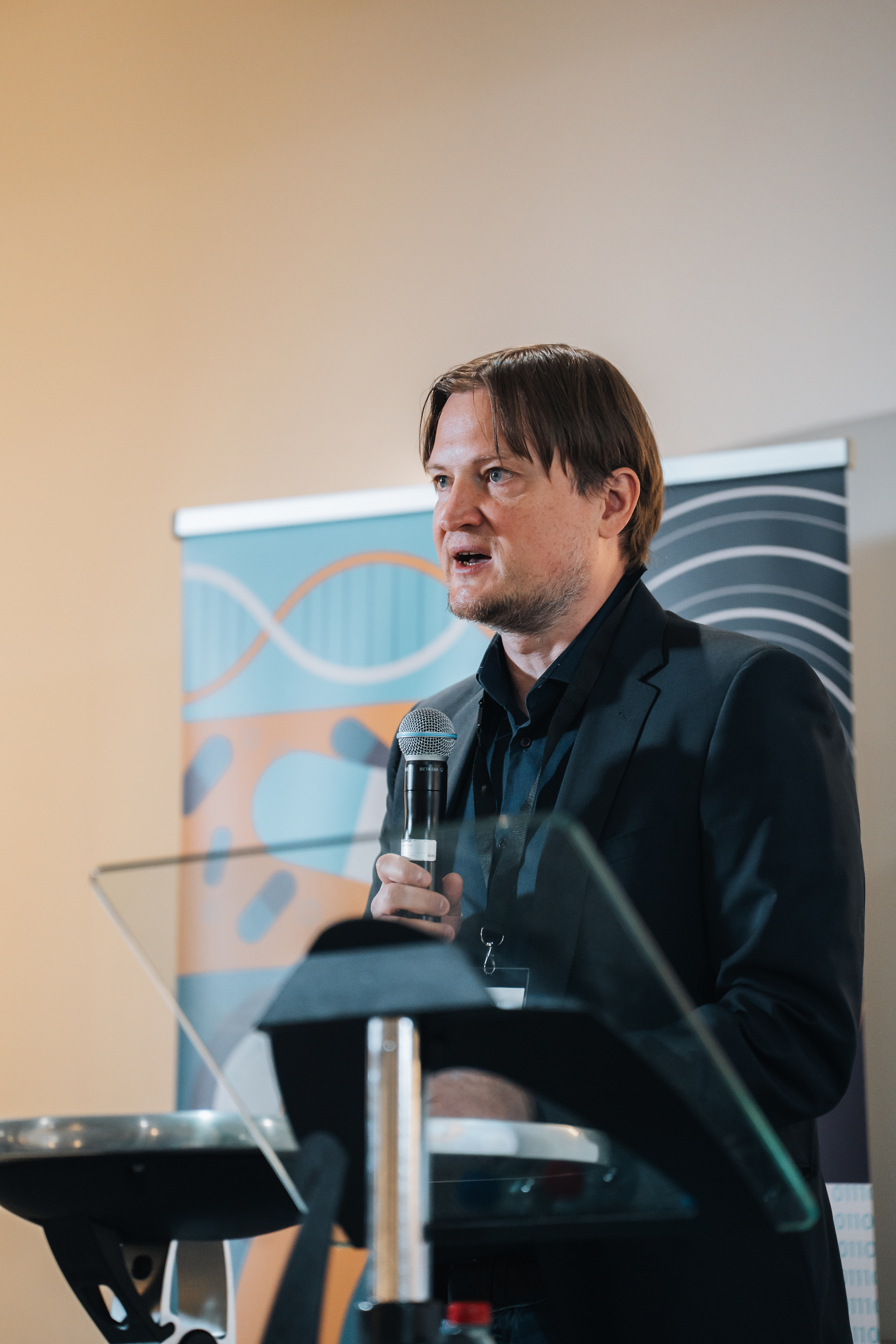
Professor in theoretical condensed matter physics and main conference organiser, University of Luxembourg
Organised by the Department of Physics and Materials Science at the University of Luxembourg, the event highlighted how essential public engagement is to the future of science. It created rare opportunities for dialogue across generations and sectors.
‟ Physicists solve problems that we do not foresee. We work together for the research of tomorrow. This event is a great opportunity to showcase how physics performs and continues to perform. ”

Professor in experimental condensed matter physics and Head of the Department of Physics and Materials Science, University of Luxembourg
The Physics for Future experience extends beyond the conference. A three-episode podcast is already available on all major platforms. Additionally, for the next 11 weeks, curated videos of the Physics for Future speakers and of university research will be released weekly on the University of Luxembourg’s YouTube channel and on the event website.
